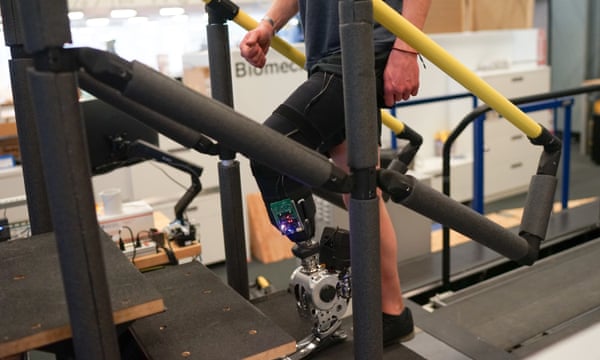"Informed AI News" is an publications aggregation platform, ensuring you only gain the most valuable information, to eliminate information asymmetry and break through the limits of information cocoons. Find out more >>
Brain-Controlled Bionic Leg Enhances Amputees' Mobility
- summary
- score

Brain-controlled bionic leg boosts amputees' speed and ease of movement. Trial results show 41% faster walking and better stair navigation.
The device uses the wearer's thoughts to flex, point, and rotate the foot, resulting in a more natural gait and improved stability on uneven terrain.
Prof Hugh Herr, co-director of MIT's K Lisa Yang Center for Bionics, leads the study. Herr, a double amputee, plans to use the technology himself.
Trial participants reported less pain and muscle atrophy, feeling that their prosthetic was part of their body, not just a tool.
A new surgery, the agonist-antagonist myoneural interface (AMI), preserves muscle connections, allowing the monitoring and translation of muscle contractions into ankle movements.
Dr. Sigrid Dupan, from University College Dublin, highlights the significance of terrain adaptability.
The MIT team aims to commercialize the leg within five years, with Herr envisioning a major step-change in clinical care for amputees worldwide.
| Scores | Value | Explanation |
|---|---|---|
| Objectivity | 7 | Comprehensive reporting with balanced viewpoints and in-depth analysis. |
| Social Impact | 5 | Significant influence on public opinion regarding prosthetic technology. |
| Credibility | 6 | Verified by multiple sources and confirmed independently. |
| Potential | 6 | High potential to lead to significant changes in clinical care. |
| Practicality | 5 | Extremely practical, widely applied in practice with good results. |
| Entertainment Value | 2 | Slightly monotonous but includes a few entertaining elements. |